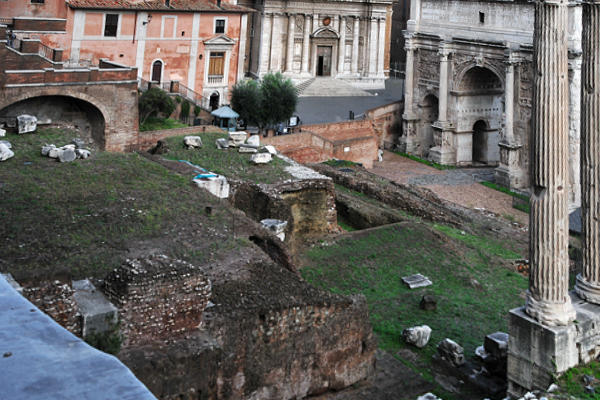

Traditionally vowed in 367 BC to commemorate the reconciliation between patricians and plebians, the Temple of Concord was rebuilt in 121 BC to foster harmony after the murder of Gracchus. It was restored during the reign of Augustus by Tiberius, who probably rededicated the Temple in AD 12. The restoration was distinguished by its opulent marble and rich architectural ornamentation. In the cella, which is the central chamber or sanctuary of a temple, a row of Corinthian columns, the capitals of which had pairs of leaping rams in place of the corner volutes, was raised on a continuous plinth projecting from the wall, which divided the cella into bays, each containing a niche. Such was the wealth of fine Greek sculpture, paintings, and other works of art that the Temple seems to have been a museum. It also was used for meetings of the Senate, especially in times of civil disturbance.
Backed up against the Tabularium at the foot of the Capitoline Hill, the architecture had to accommodate the limitations of the site. The cella of the temple, for instance, was almost twice as wide as it was deep, as was the pronaos (the columnar porch in front of the cella approached by the stairs). Here, only the foundation remains, a mound of rubble below the arched loggia of the Tabularium.
![]()